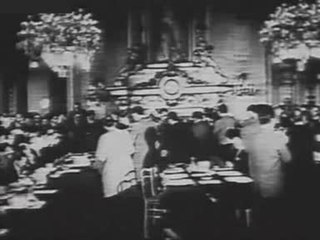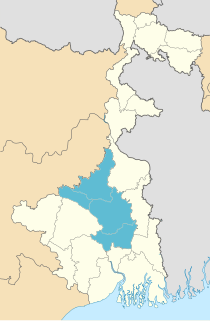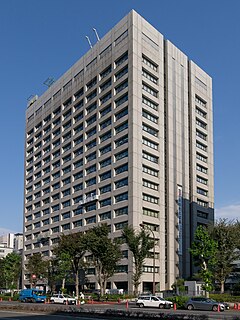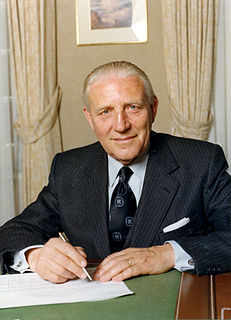Related Research Articles

British Steel was a major British steel producer. It originated from the nationalised British Steel Corporation (BSC), formed in 1967, which was privatised as a public limited company, British Steel plc, in 1988. It was once a constituent of the FTSE 100 Index. The company merged with Koninklijke Hoogovens to form Corus Group in 1999.

The European Coal and Steel Community (ECSC) was a European organisation created after World War II to regulate the coal and steel industries. It was formally established in 1951 by the Treaty of Paris, signed by Belgium, France, Italy, Luxembourg, the Netherlands, and West Germany. The ECSC was an international organisation based on the principle of supranationalism, and started a process of integration which ultimately led to the creation of the European Union.
Dumping, in economics, is a kind of injuring pricing, especially in the context of international trade. It occurs when manufacturers export a product to another country at a price below the normal price with an injuring effect. The objective of dumping is to increase market share in a foreign market by driving out competition and thereby create a monopoly situation where the exporter will be able to unilaterally dictate price and quality of the product.
The European Computer Trade Show (ECTS) was an annual trade show for the European video game industry which first ran in 1988, the last event being held in 2004.

Étienne, Count Davignon is a Belgian politician, businessman, and former vice-president of the European Commission.

The Schuman Declaration, or Schuman Plan, was a proposal by the French foreign minister, Robert Schuman, made on 9 May 1950. It proposed placing French and West German production of coal and steel under a single authority that would later be opened to other European countries. The ultimate goal was to pacify relations, between France and West Germany in particular, through gradual political integration, which would be achieved by creating common interests. Schuman asserted that "[t]he coming together of the countries of Europe requires the elimination of the age-old opposition of France and Germany...the solidarity in production thus established will make it plain that any war between France and Germany becomes not merely unthinkable, but materially impossible."

Until the early 19th century Germany, a federation of numerous states of varying size and development, retained its pre-industrial character, where trade centered around a number of free cities. After the extensive development of the railway network during the 1840s, rapid economic growth and modernisation sparked the process of industrialisation. The largest economy in Europe by 1900, Germany had established a primary position in several key sectors, like the Chemical industry and steel production. High production capacity, permanent competitiveness and subsequent protectionist policies fought out with the USA and Britain were essential characteristics.

Burdwan Division is one of the 5 administrative division in the Indian state of West Bengal. The headquarters of the Burdwan division is situated at Chinsurah while the largest city in this division is Asansol. This division is known for its huge reserve of coal, mainly in the districts of Paschim Bardhaman and Birbhum.

Faced with the challenge of reconstruction after World War II, France implemented the Modernization and Re-equipment Plan, which was designed to spur economic recovery. This plan is commonly known as the “Monnet Plan” after Jean Monnet, the chief advocate and first head of the General Planning Commission.

The European Metalworkers' Federation (EMF), founded in 1971, is a federation of 68 metalworkers' unions from 31 countries, representing a combined total of 6.5 million affiliates. It is based in Brussels, Belgium, the general secretary is Ulrich Eckelman and Bart Samyn is the Deputy General Secretary. The organisation was dissolved on 15 May 2012, to become a part - together with EMCEF and ETUF-TCL - of the newly created organisation industriAll European Trade Union on 16 May 2012

The Ministry of Economy, Trade and Industry or METI, is a ministry of the Government of Japan. It was created by the 2001 Central Government Reform when the Ministry of International Trade and Industry (MITI) merged with agencies from other ministries related to economic activities, such as the Economic Planning Agency.

The Plan of Reconstructing the Economy, commonly known as the Three-Year Plan was a centralized plan created by the Polish communist government to rebuild Poland after the devastation of the Second World War. The plan was carried out between 1947 and 1949. It succeeded in its primary aim of largely rebuilding Poland from the devastation of the war, as well as in increasing output of Polish industry and agriculture.

The first efforts to create institutions to promote European unity began in the aftermath of the Second World War. In 1951 the first organization, the European Coal and Steel Community, was established and moves to create new communities quickly followed. Early attempts at military and political unity led to the Treaties of Rome in 1957.

Riva Forni Electrici S.p.A. is a major Italian steel producer. Riva is a privately held company, the whole shareholders' equity being held by the Riva family.

The International Authority for the Ruhr (IAR) was an international body established in 1949 by the Western Allies to regulate the coal and steel industries of the Ruhr Area in West Germany. Its seat had been in Düsseldorf.

Friends of Europe is a Brussels-based, not-for-profit think-tank for European Union policy analysis and debate. The organisation, established in 1999, has no political or national allegiance and is independent of the EU institutions. Its declared goal is to foster open discussion and to stimulate new thinking on the issues facing Europe and its citizens. It is located in the Treesquare building in De Meeûssquare.

The Werner-Thorn Ministry was the government of Luxembourg between 16 July 1979 and 20 July 1984.

In the industrial sector, the Luxembourg steel industry continues to occupy the first place in the country, even after the industrial reforms which have taken place since the 1960s.

Klöckner & Co SE is a German producer-independent steel and metal distributor. Klöckner's core business is the sale of steel and non-ferrous metals. The company has an established distribution network and some 150 locations.
Heinrich Deist was as German Social Democratic Party (SPD) politician.